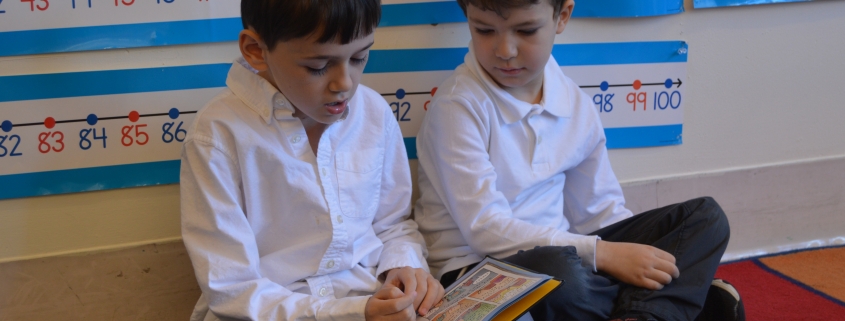What Jewish Educators Can Learn From A Muslim Author And Activist
In this column, published in The New York Jewish Week, Head of School, Benjamin Mann, contends “that if young people will be able to do something about the growing divisiveness all around us, then schools must nurture the skills and dispositions needed for students to really know people different from themselves.”
What Jewish Educators Can Learn From A Muslim Author And Activist
President Trump attended Game 5 of the World Series in Washington, D.C., and the crowd of Nationals fans booed. The next week he attended the football game between the University of Alabama and Louisiana State University in Tuscaloosa, Ala., where the crowd cheered.
The sports fans’ opposing responses to President Trump represent a very public expression of real disagreements among Americans, about immigration policy, climate change, impeachment hearings, and many other serious topics. The deepening divides in our culture and politics present educators like me with the challenge of how to prepare our students to succeed in a diverse society and to be agents for positive change in the world.
I thought about this challenge at the recent New York State Association of Independent Schools annual Head of School conference. Irshad Manji addressed the group of school leaders about our role in fostering dialogue across differences. Irshad is an author, teacher, and activist who spent many years advocating for reform within her faith tradition of Islam. In that work she faced staunch opposition, including death threats and the banning of her books in several Muslim countries. She learned from years of dialogue with people with whom she disagreed vehemently that effective change requires deep understanding of others. I am convinced that if young people will be able to do something about the growing divisiveness all around us, then schools must nurture the skills and dispositions needed for students to really know people different from themselves.
Irshad urged us to model and teach our students to come to dialogue across differences from a place of profound openness. Even as she has strongly held convictions, she believes that she learned the most from conversations in which she was truly hearing the other point of view– avoiding the temptation to cut the other off or to prepare the next response in her argument. Schools should foster students’ curiosity about all things, especially other people. Learning activities should be designed to help students move through their own process of question-asking and discovery, so that their innate curiosity leads them down a pathway towards ever deeper understanding.
Curiosity to learn new ideas and perspectives requires humility. Irshad framed her approach to conversations with people expressing ideas she finds objectionable. She maintains the possibility that she might be wrong, and asks her interlocutor “please help me understand what I am missing.” Schools should encourage critical questioning of all sorts, so that assumptions are surfaced and interrogated. Students should be practiced in seeking out what they are missing, so that they are experienced at facing the inevitable and essential learning moment when the things they thought knew and understood are changed by new information or concepts.
Exploring ideas and perspectives that differ from our own is hard and can trigger emotional reactions when they touch on things we care deeply about. Irshad urged us to teach our students not to be too easily offended, so that they can keep the hard conversations across painful differences going. Schools should nurture students’ strong sense of self, so that they know who they are, where they come from, and what they value. Students should investigate themselves and their many facets, just as they explore curricular content, so that they develop a strong identity they can sustain in the face of different people and ideas they are bound to encounter around them.
Dialogue across deeply held differences requires a commitment to seeing the humanity of all other people. I lead a Jewish day school, Schechter Manhattan, and the Torah teaches us in the very first chapter that all human beings are created in the image of God, and are therefore by definition holy. Schools should hold their students to standards of respectful discourse and help them treat each other with care even and especially when they disagree. Students who are practiced in seeing the holy humanity of their classmates are well positioned to see the same in the many other people they will meet in the world.
One wonders what the crowds of fans at each of the sporting events thinks about the other. Do the folks who booed the president in D.C. perceive themselves as “us,” and the other people who cheered in Alabama as “them” — and vice versa? If we are going to move beyond such othering, then those of us responsible for education should create schools that break down divides, by nurturing young people who are curious, humble, know who they are, and see the humanity in others who are different from them.



